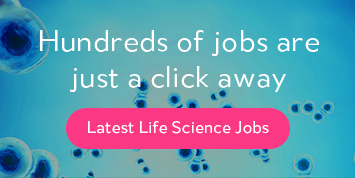
Working in a medical information job can be an excellent way to enter employment within the pharmaceutical industry because it offers a unique insight into the products, patients, medical professionals and internal teams within a pharmaceutical company. It can help you to gain the experience that will enable you to enter other medical roles in the future. Here are our tips on how to get a medical information job and how it can benefit your career.
At entry level, a career in medical information would usually begin as a medical information officer. Job titles can vary depending on the organisation; it might also be called a medical information associate or medical information executive. A medical information officer's job description includes taking enquiries by phone or email and answering them by providing compliance and product information that is gained through reference checks using published literature and confidential company data.
Medical information jobs can be consumer facing (answering queries from patients, doctors and nurses) but often they can also provide internal support to medical, sales and marketing activities within the company. Although the role requires you to answer product queries, you would not be expected to be an expert on the product because the information is provided in a structured format to help you to look up information and answer queries. This can be an excellent way to learn more about the therapy area and treatment as well as the patient's needs and those of others within the company, which makes it a great way to gain valuable experience that will serve you well should you wish to progress your career further.
The type of experience that you would gain as a medical information officer can open up routes to other medical jobs in pharma including programme management, medical science liaison (MSL), medical communications management, compliance, scientific advisors and medical affairs.
What skills do I need to get a medical information job?
Although not essential, pharmaceutical companies often prefer to hire candidates with a bachelors degree in a scientific field who already have some experience and understanding of pharmaceuticals and are well-versed in medical terminology. Providing patients and internal teams with accurate and timely information on anything that can affect a person's health carries a high level of responsibility, and as with many other pharmaceutical jobs, employers can often be stringent in their recruitment.
Having good people skills is essential to work in medical information too – particularly when the job is consumer facing – since you will be directly representing the company externally. Working in medical information requires you to be well-organised so that you can quickly find relevant and accurate information without keeping people waiting. You must be a good, clear communicator with an excellent telephone manner.
Foreign language skills are also often highly desirable in this field, and are generally one of the most sought after skills by employers in the pharmaceutical industry. Such skills can come in handy when working in countries where more than one language is spoken, or at locations that service multiple countries.
How do I gain medical information experience?
When companies will only accept permanent members of staff with previous experience in medical information, the trouble can often be getting the experience in the first place. Although a medical information job can sometimes be used as a springboard to other medical roles, many advertised medical information jobs will require you to have some level of experience in medical information already.
Some of the larger pharmaceutical companies will hire graduates through career fairs and provide training and it might also be possible to get a job at a medical information consultancy without prior experience.
Pharmaceutical companies sometimes outsource their medical information services to consultancies such as ProPharma. The advantage of working at a consultancy is that they can often hire less experienced staff and provide the necessary training in-house. Moving from a medical information consultancy to a large pharmaceutical company can be helpful in terms of career development beyond working in medical information. Consultancies provide medical information services to various large pharmaceutical companies so that they can give more varied experience with multiple clients, products and therapy areas. Experience at this sort of consultancy is highly sought after for medical information roles at the world's top pharma companies.
Other experience that will help you to get a medical information job can include other work where you have previously advised or reported on medication or other health products.
Experience of working as a pharmacist, administering over-the-counter (OTC) medicines and serving customers, is directly transferable into a medical information role. As a pharmacist, your experience in answering questions from the public about medicines and other health products will equip you well to be able to deal with the types of queries that you will receive and reliably inform people about the product whilst managing their concerns.
Working in a high-street pharmacy or hospital pharmacy as a medical information pharmacist is one of the most common routes to getting a medical information job at a pharmaceutical company, but other options are available too.
It is possible to begin your career in medical information if you have previously worked in drug safety, reporting on adverse reactions to medication because you will have gained experience with communicating important health information about pharmaceutical products. Similarly, somebody with a scientific background such as a research assistant who is reporting on preclinical studies could be considered for a medical information role when accompanied by the right qualifications.
What qualifications do I need to work in a medical information role?
There are many courses available at a variety of institutions to people who wish to begin their career working in medical information, including those run by pharmaceutical associations such as the Association of the British Pharmaceutical Industry (ABPI) and the Pharmaceutical Information and Pharmacovigilance Association (PIPA). Proclinical have also previously placed candidates that have completed private consultancy courses such as the Jayne Packham courses – Medical Information Skills 1 & 2. Attending such courses not only educates you in medical information, but also demonstrates intent in your career choices, showing prospective employers that you are committed to becoming a medical information professional.
If you have been working as a practising pharmacist it is not usually necessary to gain any further qualifications to work in medical information. The skills and experience that you would have gained will cover all the information that you would learn from attending a course.
Should I take a contract job in medical information?
Some medical information roles are offered as a short-term contract and some pharmaceutical companies will offer roles only on a contract basis. Although medical information contract jobs usually run for 6-12 months, they are often extended beyond this time. Contracting is common in the pharmaceutical industry and many people prefer to work in this way because it offers flexibility and the variety of working on different projects and it can often pay more than an equivalent permanent position. If this is something that you are considering, take some time to read some of our previous posts about contracting.
The downside to contracting can be that it usually offers little in the way of long-term prospects of career progression – other than that through the experience that you have gained in the role. Since contractors are not employees of the company, they will not be promoted or given any training. If you have been working as a contractor for a while and you wish to progress your career with a promotion or extra responsibilities, you would need to look for a permanent position. Unfortunately, it is often the case with contracting that those wishing to move from contract to permanent employment can find that they are taking home less money. However making this short-term sacrifice can improve your long-term career prospects.
How do I progress my career further?
If you are already working in a medical information role, how you progress your career can vary greatly depending on the direction that you wish to take. For more medically qualified individuals, including pharmacists and doctors, options include progression to medical/scientific advisor, medical science liaison and medical affairs jobs – all of which involve communicating critical scientific, medical, technical and development issues with healthcare professionals. Other directions that medical information can lead to include compliance and signatory roles, programme management and communications management.
To demonstrate some of the career paths from medical information into other areas, here are some examples of real Proclinical candidates:
Candidate A: This candidate worked in a high-street pharmacy chain for 3 years after graduating with a masters of pharmacy before moving into a role as a medical information officer at a leading global pharmaceutical company. After 18 months they were hired by another big pharmaceutical company as a medical information scientist.
Candidate B: Having graduated with a PhD in molecular pharmacology, this candidate worked as a post-doctoral research assistant at their university for a few years, while also gaining experience at a pharmaceutical services company undertaking preclinical drug studies. After working at the university, they moved directly to a multinational pharmaceutical company as a medical information officer for 3 years, later going on to become a medical writer.
Candidate C: This individual began their career as a self-employed locum pharmacist after graduating from university with a masters of pharmacy. After 6 years of pharmacy work, they then worked as a contractor at various pharmaceutical companies over a period of 7 years, gaining a wide variety of experience in taking short-term contracts as a medical affairs officer, a medical information officer and a medical information scientist. They were then recruited for a freelance medical science liaison role by an international pharmaceutical company.
There are countless other pathways into different careers and specialties that can begin by working in medical information, which is what makes medical information opportunities so attractive to jobseekers within the pharmaceutical industry. For tips on how to stand out as a candidate, check out some of our other career advice articles.
Looking to progress your career now? Proclinical are always looking for individuals with experience in medical roles within the pharmaceutical industry who are looking to take their career to the next level. If this sounds like you, simply upload your CV online and we will match your profile to our new and existing opportunities.


.png)





.png)

.png)
.png)

.png)
.png)













